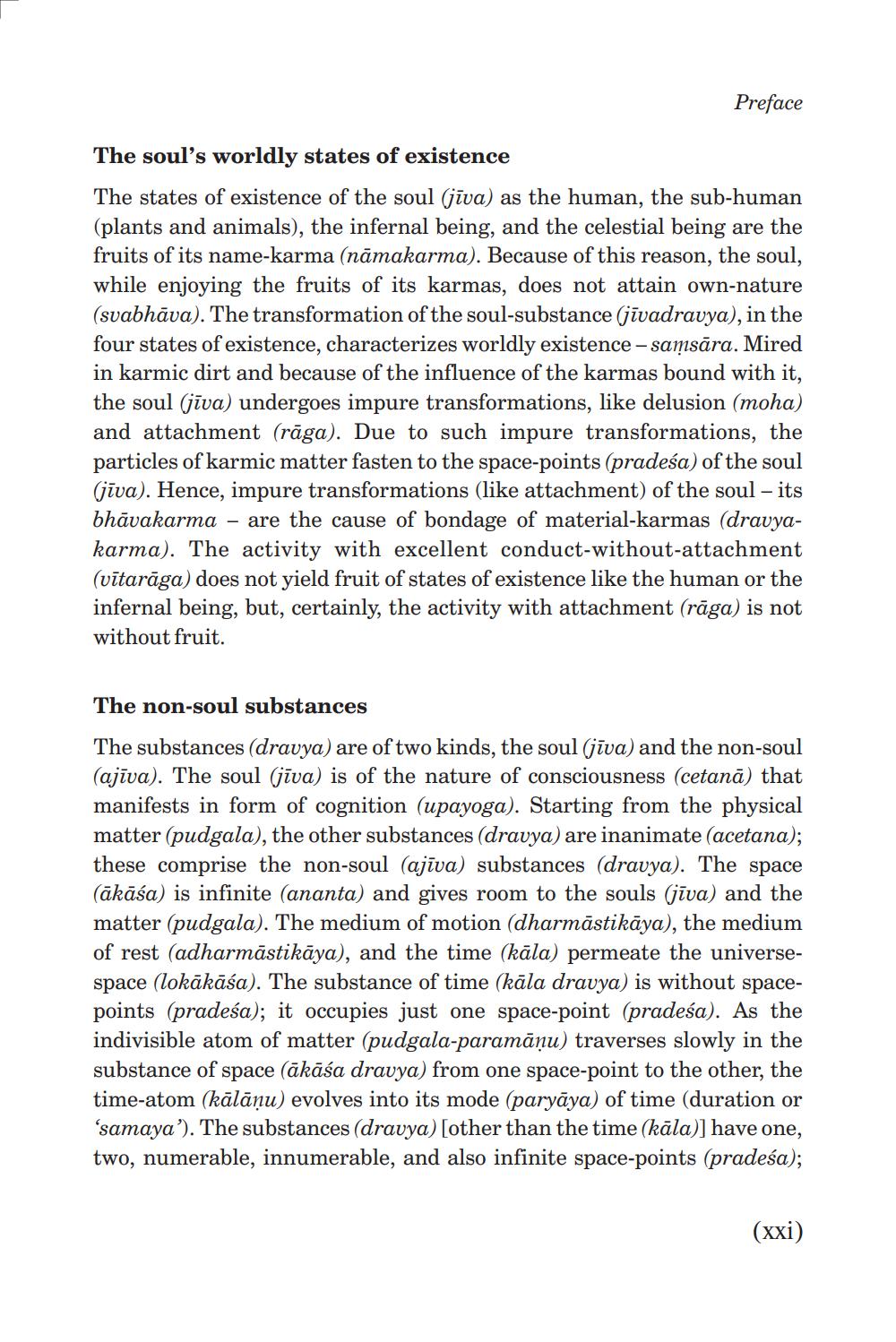________________
Preface
The soul's worldly states of existence The states of existence of the soul (jīva) as the human, the sub-human (plants and animals), the infernal being, and the celestial being are the fruits of its name-karma (nāmakarma). Because of this reason, the soul, while enjoying the fruits of its karmas, does not attain own-nature (svabhāva). The transformation of the soul-substance (jīvadravya), in the four states of existence, characterizes worldly existence -samsāra. Mired in karmic dirt and because of the influence of the karmas bound with it, the soul (jīva) undergoes impure transformations, like delusion (moha) and attachment (rāga). Due to such impure transformations, the particles of karmic matter fasten to the space-points (pradeśa) of the soul (īva). Hence, impure transformations (like attachment) of the soul - its bhāvakarma - are the cause of bondage of material-karmas (dravyakarma). The activity with excellent conduct-without-attachment (vītarāga) does not yield fruit of states of existence like the human or the infernal being, but, certainly, the activity with attachment (rāga) is not without fruit.
The non-soul substances
The substances (dravya) are of two kinds, the soul (jīva) and the non-soul (ajīva). The soul Gīva) is of the nature of consciousness (cetanā) that manifests in form of cognition (upayoga). Starting from the physical matter (pudgala), the other substances (dravya) are inanimate (acetana); these comprise the non-soul (ajīva) substances (dravya). The space (ākāśa) is infinite (ananta) and gives room to the souls (jīva) and the matter (pudgala). The medium of motion (dharmāstikāya), the medium of rest (adharmāstikāya), and the time (kāla) permeate the universespace (lokākāśa). The substance of time (kāla dravya) is without spacepoints (pradeśa); it occupies just one space-point (pradeśa). As the indivisible atom of matter (pudgala-paramāņu) traverses slowly in the substance of space (ākāśa dravya) from one space-point to the other, the time-atom (kālānu) evolves into its mode (paryāya) of time (duration or 'samaya'). The substances (dravya) (other than the time (kāla)] have one, two, numerable, innumerable, and also infinite space-points (pradeśa);
(xxi)




